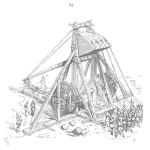
Apple new iPhones will be somewhat different to those of the past. They will now have a USB-C charging and data port, and not Apple’s lightning cables. Why? Because the European Union said so. And they said so because they are not happy with the number of different charging cables we all now need for our various devices. Having a single cable that can charge an iPhone, Samsung smartphone, and virtually every other small electronic consumer product makes sense. It means fewer cables, smaller carbon footprints, less electronic waste, and prices will come down as less and less products assume that they need to provide a charging cable in their packaging. I have at least 20 power cables in my office that have been provided with various electronic gadgetry over the years.




 Ask a question or send along a comment.
Please login to view and use the contact form.
Ask a question or send along a comment.
Please login to view and use the contact form.